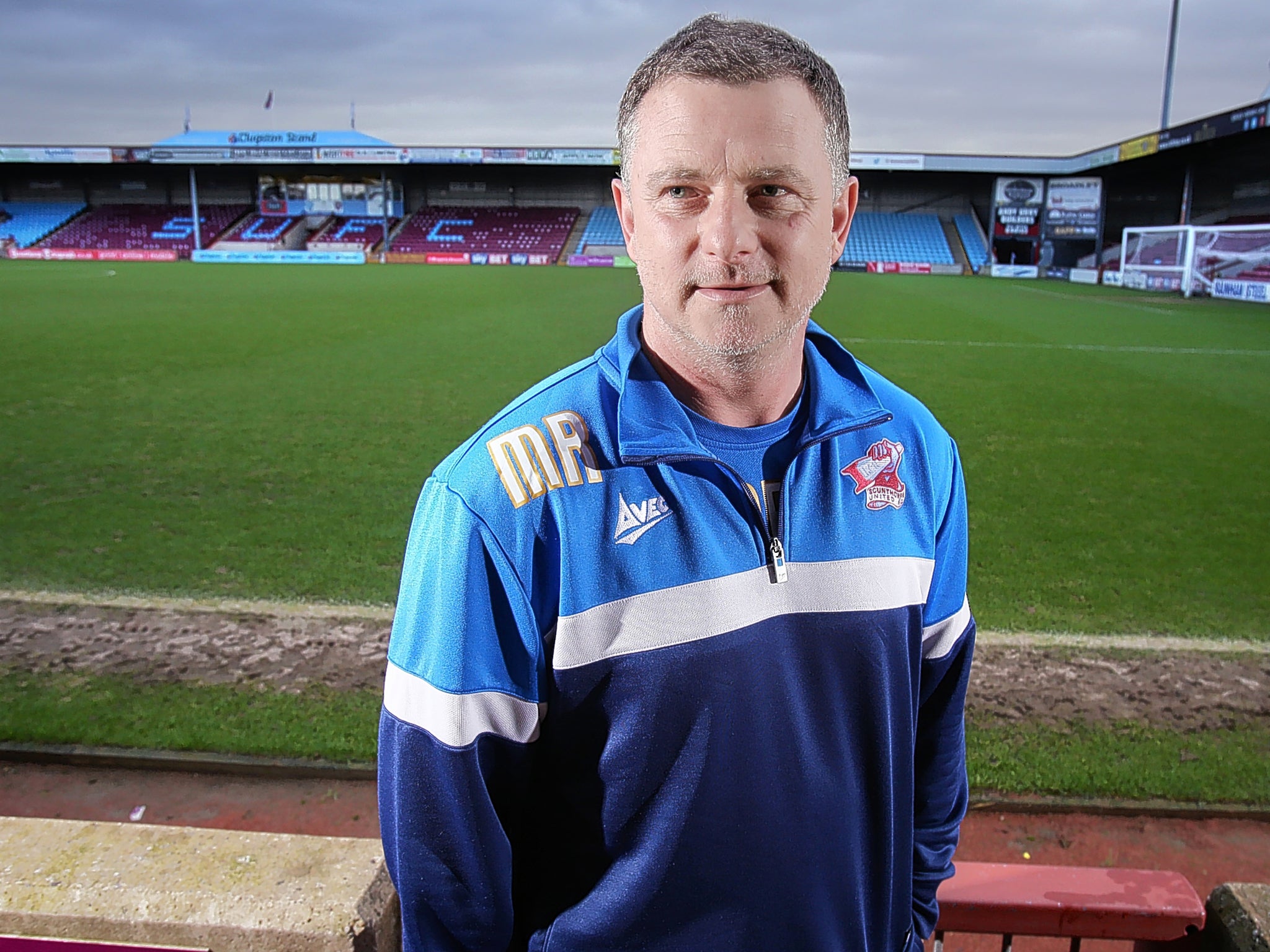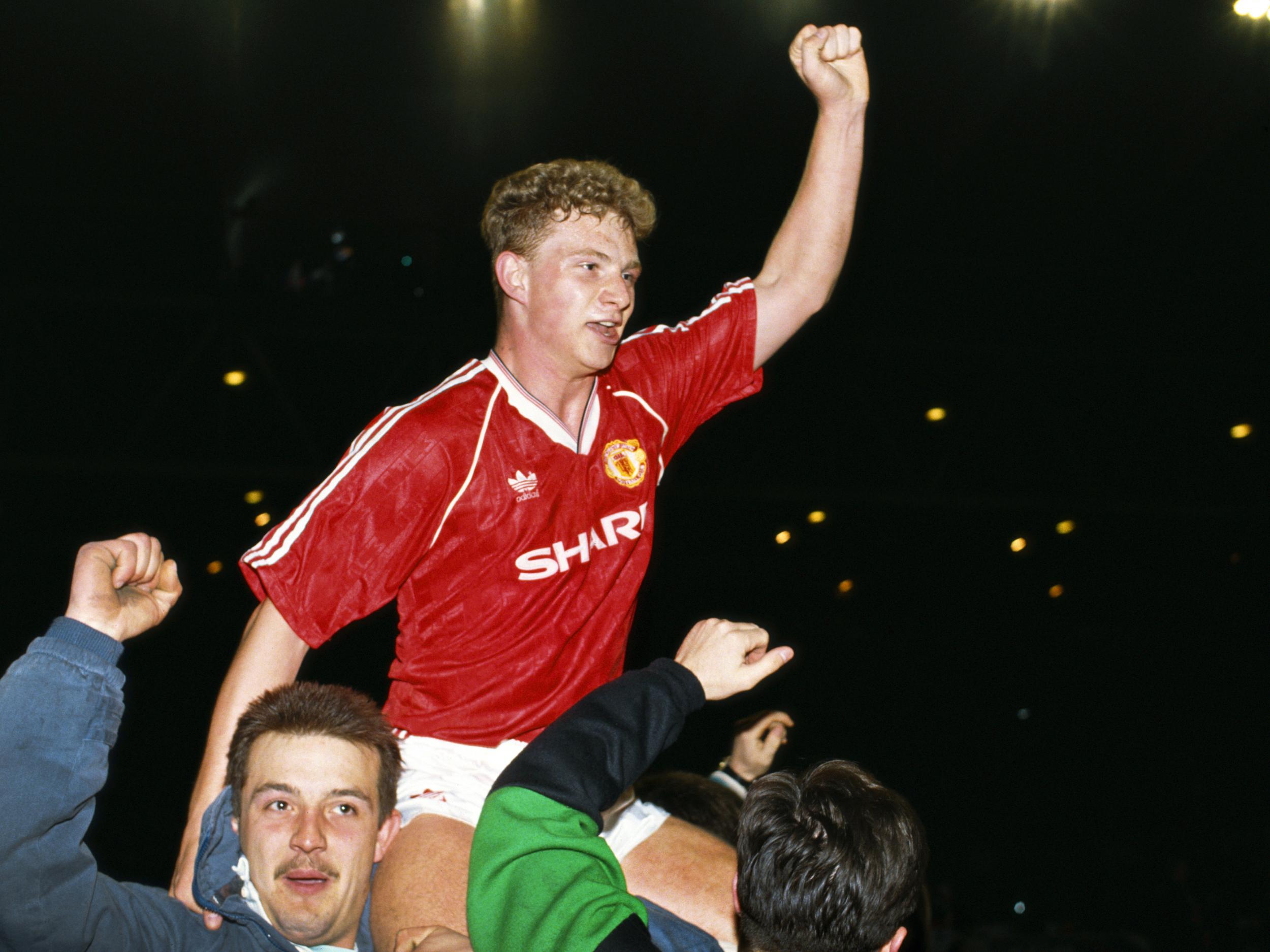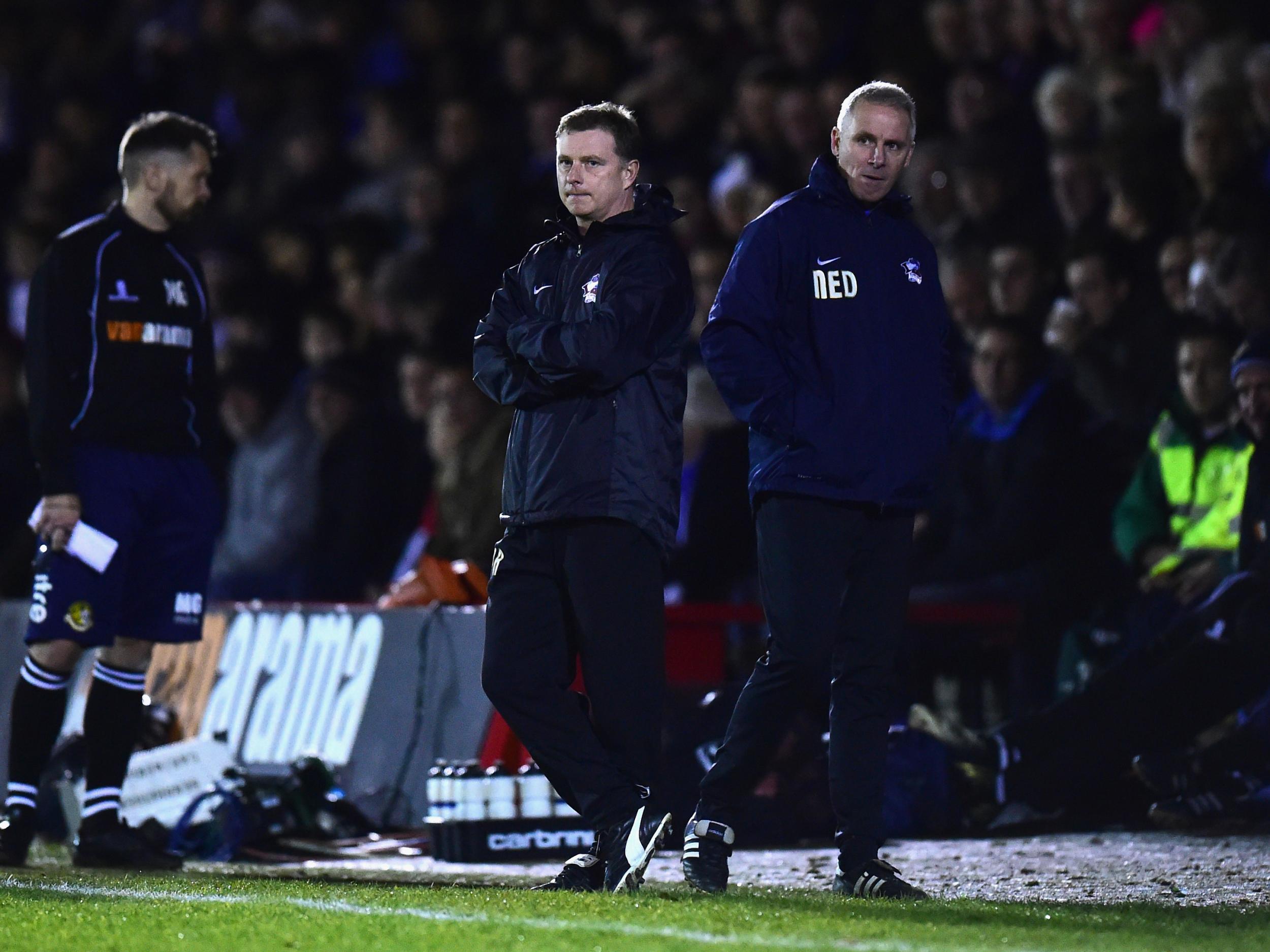Mark Robins interview: Scunthorpe manager aims to be man of the moment again at Chelsea
EXCLUSIVE: His FA Cup goal in 1990 is credited with saving Fergie’s job. Now Robins is hoping to make more history

Your support helps us to tell the story
From reproductive rights to climate change to Big Tech, The Independent is on the ground when the story is developing. Whether it's investigating the financials of Elon Musk's pro-Trump PAC or producing our latest documentary, 'The A Word', which shines a light on the American women fighting for reproductive rights, we know how important it is to parse out the facts from the messaging.
At such a critical moment in US history, we need reporters on the ground. Your donation allows us to keep sending journalists to speak to both sides of the story.
The Independent is trusted by Americans across the entire political spectrum. And unlike many other quality news outlets, we choose not to lock Americans out of our reporting and analysis with paywalls. We believe quality journalism should be available to everyone, paid for by those who can afford it.
Your support makes all the difference.He is the man who scored arguably the most important goal in the history of Manchester United. Without his FA Cup third-round winning strike against Nottingham Forest on 7 January 1990, United may well have sacked then plain old Alex Ferguson, and yet Mark Robins’ strongest memory of that momentous day is of facing Fergie’s famous hairdryer before a ball had even been kicked – and all because of a plate of sandwiches.
Robins faces another big FA Cup occasion this afternoon when his Scunthorpe United side take on Chelsea at Stamford Bridge, but sitting in the Legends Lounge at Glanford Park on Friday, where portraits of Kevin Keegan and Ray Clemence take pride of place, he broke into a smile as he recalled the tense build-up to that third-round tie 26 years ago.
“The main thing was that I shared a room with Lee Martin and he ordered some sandwiches after we’d had our pre-match meal. And when we were clearing the bill the manager had seen there was extra food on and absolutely slaughtered us for having extra.”

It turned out that the homegrown, hungry pair would do as much as anybody to earn Ferguson his first trophy at Old Trafford. While Martin scored the only goal of that year’s final replay against Crystal Palace, Robins ended up scoring several crucial goals en route – starting that January afternoon on the banks of the Trent. “We were the underdogs on the day and people expected Forest to win,” he said. “That’s why football is so great and the FA Cup is so great – because it gives you an opportunity. I got on the end of a brilliant cross from Mark Hughes and managed to score the winner. That was the start of it.
“The FA Cup, to me, that season was perfect. We were away from home all the way through to the final and I scored against Newcastle and in the semi-final against Oldham to put us into the final.”
His semi-final replay strike at Maine Road came only minutes after he had gone on in extra time. “I remember Archie Knox saying to me, ‘Go and make a name for yourself’.”
Robins was 20 then, and only a few years earlier would sit glued to his radio at home in Oldham, listening to United’s big Cup matches in an era when the old trophy meant so much to a club’s fortunes. “The FA Cup was huge,” he said. “It was still the time when you would sit down at 10 o’clock in the morning and the build-up to the FA Cup final was on. I remember listening to Cup semi-finals when the likes of Mark Hughes and Norman Whiteside, Bryan Robson and Frank Stapleton, were scoring goals.”
As a player he remained “in awe of” men such as Robson and Hughes. “As a local player, I never made it into the first-team dressing room. We were always in the reserve team’s dressing room. I was sold at 22, so that was a tough nut to crack, a tough dressing room but a great dressing room.”
And did he ever receive thanks for the goal that saved Ferguson’s job? “People say that all the time and the answer is no, but why would he? At the end of the day he picked me to do a job. I was doing my job regardless of anything that was going on around it. It is total conjecture now, and I think what happened was he managed to win his first trophy. He was a good, good manager and deserved all the success he got.”

Today, Robins is hoping to write another big FA Cup story with Scunthorpe, the League One side he took over 15 months ago. The Iron are a club with an ambitious owner, Peter Swann, and plans for a new stadium, but by Robins’ own admission they have had a “bitty” season in League One – not helped, he says, by injuries. Yet the task of climbing the table towards the top six is on hold this weekend; instead they will look to upset the holders.
Scunthorpe’s estimated annual £2.1 million expenditure on playing staff is 100 times less than Chelsea’s £215.6m wage bill, and today’s match has a “big implication” financially for a club who generate around £30,000 from home games. Yet even in League One, footballers today undergo a level of preparation a world away from that experienced by Robins’ 1990 United side.
“It is a different era. Our pre-match preparation at Old Trafford was we’d be in at 11am and have steak and chips for a pre-match meal in the grill room and would sit and watch Football Focus in the players’ lounge until we were ready to get changed.
“[Here] the nutrition is done, the drinks, the hydration, all those things are done. Even at our level you are looking to find out the fatigue levels of players. We have got GPS systems showing how far and how fast players are running and what that means. We have analysts who analyse data and give me reports. I get a report every evening as to the status of the players.”
As for whether this leads to an improved product on the pitch in the lower Leagues, Robins – who has also managed Rotherham, Barnsley, Coventry and Huddersfield – suggested the development of players in academies is a notable factor in a gradual shift. “There are times when there is some good football played and there are a lot of times when it is a real grind [but] it has changed slightly. You’re looking at academy players now being coached in a different way. You haven’t got the raw, real nasty strikers that will go and elbow people – the game has changed so much that you can’t do that any more. So banging the ball forward, getting it out wide, putting the ball in the box and a big striker with no teeth trying to jump over your centre-half… it has all changed.
“We are trying to keep the excitement, but you have to do it with an element of control. The game is evolving all the time. Some people like it, some people don’t like it and would prefer the old style where it is up and at ’em stuff.
“Others are more connoisseurs of it and see the way the game is evolving and see the way the game has to go for clubs like ours. Because scouts from the top divisions can then say, ‘Actually we can see what they are trying to do there and he can fit into what we are trying to do’.”
As for how Scunthorpe will try to operate this afternoon, Robins smiled as he sized up the magnitude of the task ahead. “My chief scout, Steve Taylor, went to watch Chelsea last Sunday and I was watching it as well. We normally have a piece in our match preparation where the players see how to beat the opponent, how to cause them problems. In that space he just put ‘just enjoy the day’ – with a smile.”
Join our commenting forum
Join thought-provoking conversations, follow other Independent readers and see their replies
Comments